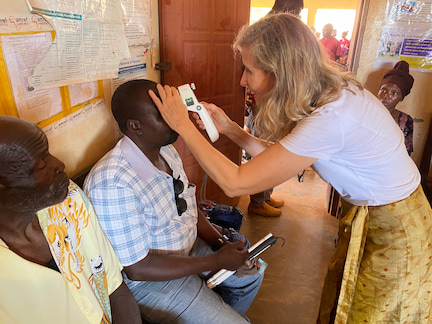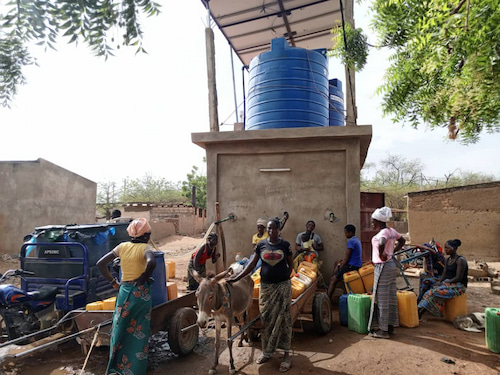Why this laboratory
The Burundi laboratory will first help us to diagnose whether a lesion appearing on the skin or in any internal organ is infectious or tumoural, or whether it is malignant or benign. Only with this information can we consider antibiotic treatment if it is infectious, or surgical treatment if it is malignant.
The second pillar of the laboratory will be to be able to perform vaginal cytology for the early diagnosis of cervical cancer. And the third mission of the laboratory will be to be able to determine, through biopsies, the origin of skin ulcers. A high number of people in Burundi have skin ulcers, which are very disabling and in many cases they reach the bone, which becomes infected. With this laboratory it will be possible to determine the origin of these ulcers, so that an effective treatment can be established.
Two diseases that could be eradicated
This laboratory will also allow us to treat pathologies such as yaws and Buruli ulcers which are two of the more than 20 neglected tropical diseases that exist in the world according to the World Health Organisation.. The pian is a tropical endemic disease caused by a bacterium very similar to the one that causes syphilis. Although the disease is also known as "children's syphilis", it is not spread sexually but by direct skin-to-skin contact. The disease manifests itself on the skin in the form of large ulcers and scabs, and inflammation of the bones.
The after-effects of this infection are terrible, with the formation of huge, disfiguring and painful scars and destruction of bones. The amazing thing is that three tablets of azithromycin completely cures the disease. And by treating the population preventively, the disease can be eradicated from a region.
On the other hand, Buruli ulcer is a chronic disease caused by an environmental mycobacterium: Mycobacterium ulcerans. This disease, which often affects the skin and sometimes the bone, can cause permanent disfigurement and long-term disability. The mechanism of the disease is not known.
transmission of the disease and there is no way to prevent it, but with proper antibiotic treatment the prognosis is very good.

The creation of this laboratory marks an important milestone in medical care in Burundi. The design and implementation of this project is being carried out thanks to the very important involvement of people such as Dr. Ricardo Ruiz, head of the Dermatology service of this hospital and director of the Clínica Dermatológica Internacional, Dr. Marta Conde, president of the Kyrikú Foundation, which has an extensive presence in Burundi, and Dr. Ana Belén Enguita, a pathologist at the Clínica Dermatológica Internacional and the Hospital 12 de Octubre.
Burundi's laboratory will be able to diagnose lesions such as infections and tumours. It will facilitate early detection of cervical cancer through Pap smears and determine the origin of skin cells, significantly improving treatment and quality of life for those affected.

The creation of this laboratory marks an important milestone in medical care in Burundi. The design and implementation of this project is being carried out thanks to the very important involvement of people such as Dr. Ricardo Ruiz, head of the Dermatology service of this hospital and director of the Clínica Dermatológica Internacional, Dr. Marta Conde, president of the Kyrikú Foundation, which has an extensive presence in Burundi, and Dr. Ana Belén Enguita, a pathologist at the Clínica Dermatológica Internacional and the Hospital 12 de Octubre.
To be obtained: 60.227,64 €.
Recover up to 80% of your donations
According to Spanish tax regulations, it is possible to deduct 80% from the first €250 you donate to charity. What you donate above this amount is tax deductible to 40%. But if you have not reduced your contribution to the same charity for more than two years, the deduction will be 45% instead of 40%.
Please note that these regulations apply if you are taxed in Spain and that legislation may change from one country to another.
*The 45% whe in the exercise of the two previous years an equal or greater amount has been donated to the same entity.
You can also make a transfer to the account number: ES43 0075 5977 8706 0533 3585 or by sending an email to the following address Bizum with code 33443.
To let us know that you want to donate to this specific campaign, please send us an email to donantes@fundacionrecover.org or call to 91 411 09 68 indicating that you want to donate to the Burundi campaign.
Do you want to know more about our work?
© Copyright 2024 - Recover Hospitals for Africa Foundation
2024 - Recover Hospitals for Africa Foundation













